TESOL Board Connect: How to Turn Into a Baobab Tree
by Mawa Samb
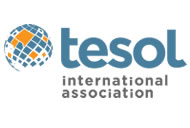 “It always seems impossible until it’s done” (Economy, 2018). That quote from President Nelson Mandela has inspired me in my everyday and professional lives. Indeed, life is full of obstacles and ordeals that discourage people in their paths for a better life. Yet, trying to follow the example of my role model and hero isn’t fortuitous.
“It always seems impossible until it’s done” (Economy, 2018). That quote from President Nelson Mandela has inspired me in my everyday and professional lives. Indeed, life is full of obstacles and ordeals that discourage people in their paths for a better life. Yet, trying to follow the example of my role model and hero isn’t fortuitous.
Actually, while sightseeing in the city of Glasgow in 2017, I came across the Nelson Mandela Place, and it puzzled me a lot: How could an African bear the name of such a famous place in Europe? The answer was easily found because the hero of the fight against apartheid (discrimination laws in South Africa) and Nobel Peace Prize winner isn’t only a leader for his fellow citizens, but an example for the entire world because of his integrity, engagement, empathy, emotional intelligence, sense of sacrifice, and interpersonal skills. He gave everything he had to his people without expecting anything in return.
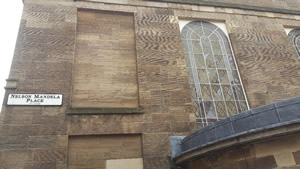
Nelson Mandela Place in Glasgow, Scotland
Make the Difference for Our Community
Even if nobody can follow the exact footsteps of this unique hero, my wish has always been to make the difference for my community and my colleagues. Despite my large family (six brothers, two sisters, an uneducated mother, and a father who was too busy to look after us) and my immediate neighborhood, swarming with drug addicts and school drop-outs, I have always remained convinced that my fate should not be connected whatsoever to my challenging environment—like Baobab trees, which can be resilient and can adapt in order to survive in hostile environments.
Born, raised, and educated in Senegal (Goree Island specifically), a poor francophone country in West Africa, famous for being the place where slaves from all over the continent were kept before being shipped to the United States, my path may seem atypical for an ordinary high school teacher. My career as a teacher started in 1990 in a region where there were no computers, libraries, or resource centers—and, mostly, no intellectual activity. I had to travel to the capital to get resources for my professional development. Luckily, after 4 years, I was posted in the capital city.
English Club Supervisor and Pedagogical Advisor
In my school, an all-girls school named Martin Luther King Jr. Middle School, I revamped the English Club, and we would celebrate King Jr. Day in the presence of the ambassador of the United States. The students performed successful skits and songs that moved all the authorities, and 2 years later, we welcomed Hilary Clinton and her daughter Chelsea in our school. We also welcomed Linda Finch, a woman aviator trying to reenact Amelia Earhart’s flight itinerary, in Dakar.
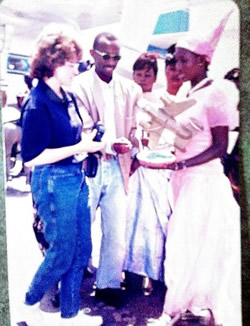
Linda Finch at the Dakar airport with my students welcoming her
Our English Club became famous and started receiving a lot of invitations from other schools and teachers’ organisations, and it would perform in many events. For 4 years, contests with English clubs were almost all won by our club, and this paved the way to my earning the Fulbright scholarship to go and teach in the United States for a year in 1999.
ATES and TESOL
The first great step I took was to go to the Ministry of Education and enquire about all professional development activities. I was directed to join the Association of Teachers of English in Senegal (ATES), which would meet the third week of the month. From there, I became an active member and even, along with two colleagues, initiated the English Club Festival for students.
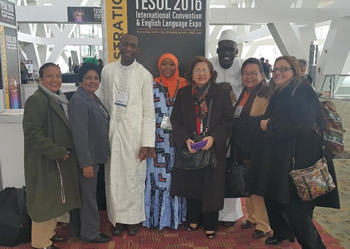
TESOL Convention in Baltimore, 2016
The real adventure with teachers associations began when I became the organisation officer, and then the chair of the regional branch for 8 years. Being an important member in the national board, I strengthened the sponsorship committee and raised a lot of funds that helped the association become more viable financially. During these years, we developed the association, became a TESOL International Association affiliate, and at the same time had a partnership with IATEFL as well as WATESOL and MDTESOL. The latter two of these organisations would fly speakers to our events and we would do the same for them; I was a guest speaker in 2005 in Washington, DC, during the WATESOL conference.
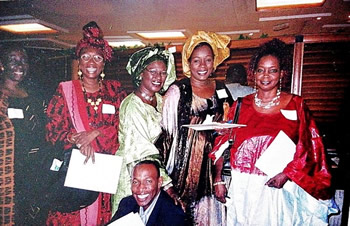
2005 TESOL International Symposium in Dakar
During the 2005 Symposium organised by TESOL in Senegal, I played a key role in the organisation as panelist, moderator, and host of some TESOL officials. The real story with TESOL started at that time, and the interactions we had with TESOL officials greatly contributed to strengthening our organisation in the subregion, and we became a reference to all the other teachers associations in Africa.
In 2010, TESOL held its Global SpellEvent in Senegal after intensive negotiations, and I became the coordinator of that event. I also became the national president of ATES. Then, 4 years later, I was asked by TESOL to join its 50th anniversary committee.
Teacher Trainer and Consultant
In my career, 2010 is an important year, as I became a teacher trainer and resumed my courses at the university for a PhD in American studies. With my experience with teachers associations, I became the cofacilitator in 2012, along with Brock Brady (TESOL) and George Pickering (IATEFL), of the West African Teachers Association symposium, involving 12 African countries in Côte d’Ivoire. There was a remake of the same symposium in Dakar the following year, and I was asked by the British Council to go to Malawi to revamp their teachers association. I also wrote an article for the British Council Innovations Series entitled “Formative Assessment for a Pedagogy of Success” (p. 33) and defended my PhD on “The Struggle of Ethnic Minorities and the American Ideology of Success” in 2014.
As a teacher trainer, I supervise teachers, observe them in their classrooms, and organise workshops for their professional development. I am also the Senegalese expert for the West African Economic and Monetary Union Baccalaureat, aiming at harmonizing practices in the eight countries for our national exams. In 2019, I became the coordinator of the Lauder Institute of Pennsylvania University for their 5-week immersion program in Dakar and Abidjan. I constantly receive requests to train teachers nationwide on the reforms of our national exams by touring the country. In addition, I helped organise TV classes in our national television during the COVID-19 pandemic and was involved in the debrief sessions following classes delivered by teachers.
Conclusion
My final thoughts are that we don’t choose to be leaders but rather, people choose us. In fact, when other people are convinced that our mission is to serve them without our requesting anything in return, then our destiny is set, and whether we accept the mission or not, once people have made their choice, it is difficult to resist them. If we try to inspire but not manipulate the others, if we commit ourselves to devoting our lives and energy for the good of an organisation, inevitably we will be chosen by our peers.
Leadership is about vision, engagement, a sense of responsibility, and, mostly, humility. Being the first African francophone to join the TESOL Board of Directors is a great honor but also a big challenge to represent our continent. Besides, expectations are high from my African colleagues who didn’t think that a teacher from a francophone country could achieve such a position. Anyway, who would have thought that President Nelson Mandela, being imprisoned for more than 26 years on a remote island, would be set free and become the first African president in a desegregated South Africa?
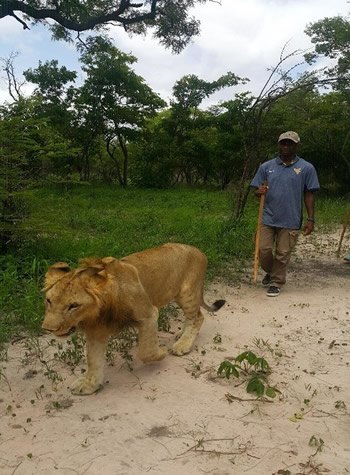
Fathala reserve in the South of Senegal, July 2018 in Dakar
We must believe in our dreams and strive to achieve them. Guidance, knowledge, expertise, skills, empathy, generosity, and interpersonal skills are expected from leaders in our society. It does not take courage to walk with a lion or be adventurous, but it is about having a strong will to overcome our fears and fulfil our dreams.
Reference
Economy, P. (2018, July 21). 17 wise Nelson Mandela quotes that will inspire your success. Inc. https://www.inc.com/peter-economy/17-wise-nelson-mandela-quotes-that-will-inspire-your-success.html#:~:text=%22A%20winner%20is%20a%20dreamer,he%20who%
Dr. Mawa Samb, Fulbright Exchange Teacher, is currently a teacher trainer and instructor at the English Language Institute. He is also a consultant for the Lauder Institute Immersion Program of Pennsylvania University, the British Council, and the West African Economic and Monetary Union Baccalaureat. He also teaches at Ecole Superieure Polytechnique de Dakar in the IT Department. Former Association of Teachers of English in Senegal president, he has also served TESOL International Association in various capacities and won a 2016 TESOL Professional Development Travel Grant for Practicing ESL/EFL Teachers.